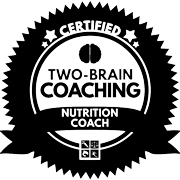Introduction:
In the fitness community, the debate over exercising on an empty stomach, especially in the context of intermittent fasting, continues. While intermittent fasting offers benefits such as improved fat utilization, the debate surrounding fasted strength training persists. This article explores the relationship between fasting, resistance training, and muscle gain, shedding light on why fueling your body before a workout might be essential.
How Your Body Uses Food When You Train:
To comprehend the effects of fasting on strength training, it’s crucial to understand how the body uses food for energy during workouts. When you eat a pre-workout meal or snack, your body converts carbohydrates into glycogen, which serves as energy for your muscles. However, when you lack this fuel, your body fatigues faster, hindering your ability to achieve optimal results in strength training.
Reasons Why Fasted Strength Training Might Not Be Ideal:
- Quick Fatigue: Fasting depletes glycogen, leading to faster fatigue during workouts. Lower glycogen levels mean reduced intensity, making it challenging to push yourself during exercises. Moreover, low blood sugar can affect mental clarity, making focused workouts difficult.
- Muscle Loss: Muscles rely on glycogen for energy. Without sufficient glycogen, the body turns to alternative energy sources, potentially breaking down muscle tissue. This contradicts the purpose of strength training, which aims to build and preserve muscle mass.
- Lack of Strength Gain: Building muscle requires a calorie surplus and progressive overload. Fasting may hinder your ability to increase workout intensity and maintain a calorie surplus, hindering strength gains. Research indicates that participants in an intermittent fasting study showed no significant strength gain, emphasizing the importance of proper nutrition for muscle growth.
- Risk of Injury: Strength training, especially with progressive overload, can strain muscles. Lifting heavy weights with inadequate energy stores increases the risk of injury due to compromised form.
Conclusion:
While fasting before strength training might not be inherently dangerous, it isn’t conducive to optimal muscle-building results and might elevate the risk of injury. To maximize your workouts and ensure safety, consider consuming a small pre-workout snack. Even a light snack can provide the necessary energy, enhancing your training session without compromising your goals. Listening to your body, providing it with adequate nutrition, and maintaining proper hydration are vital components of a successful fitness regimen. Consulting a fitness or nutrition professional can provide personalized guidance, ensuring you achieve your health and fitness goals effectively.



